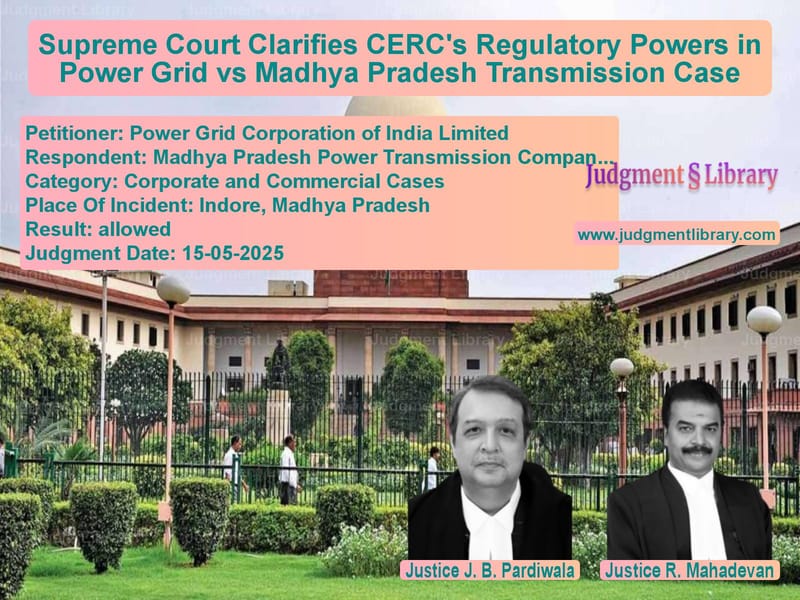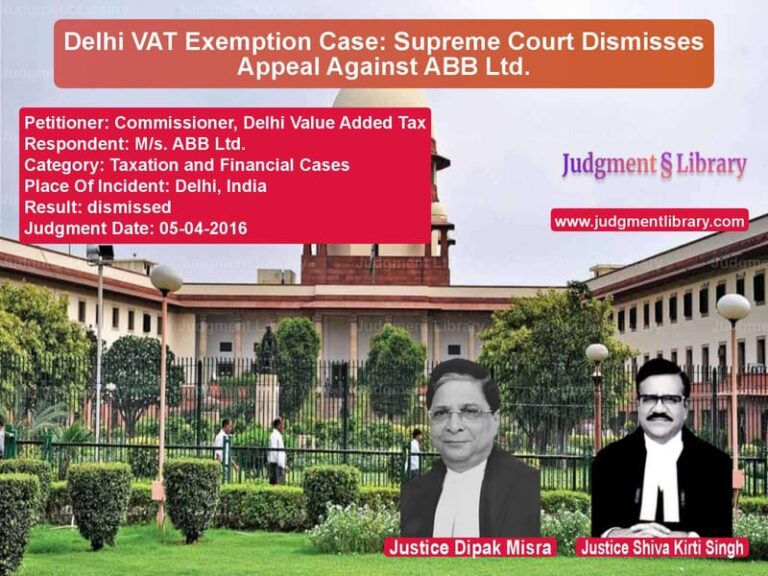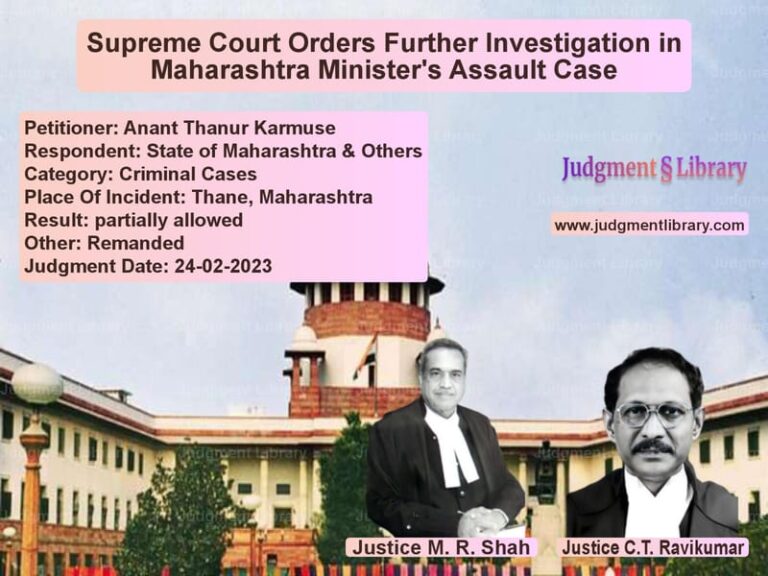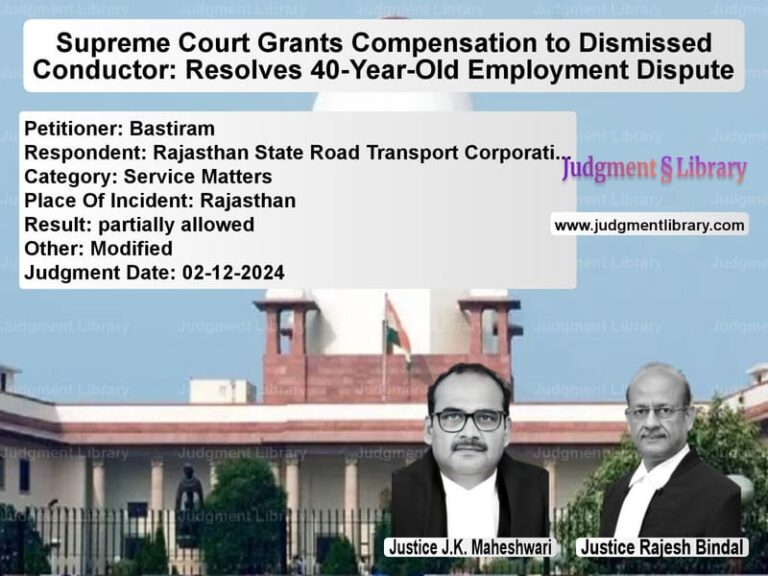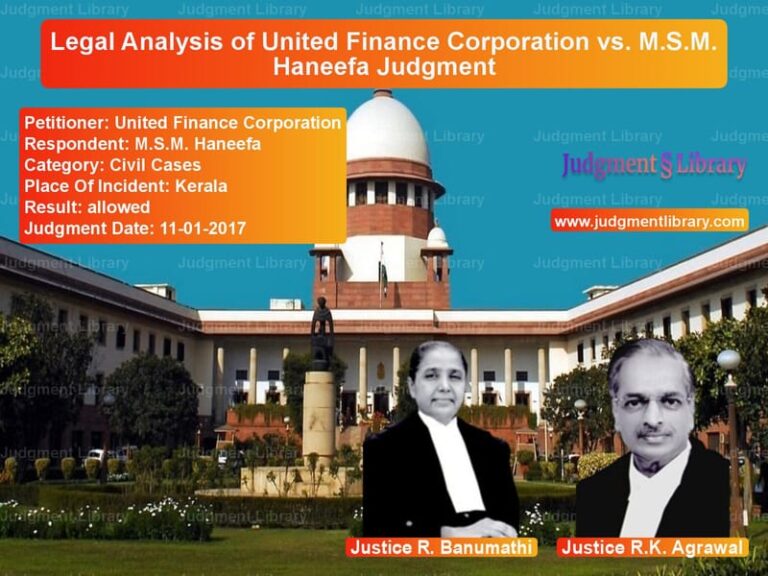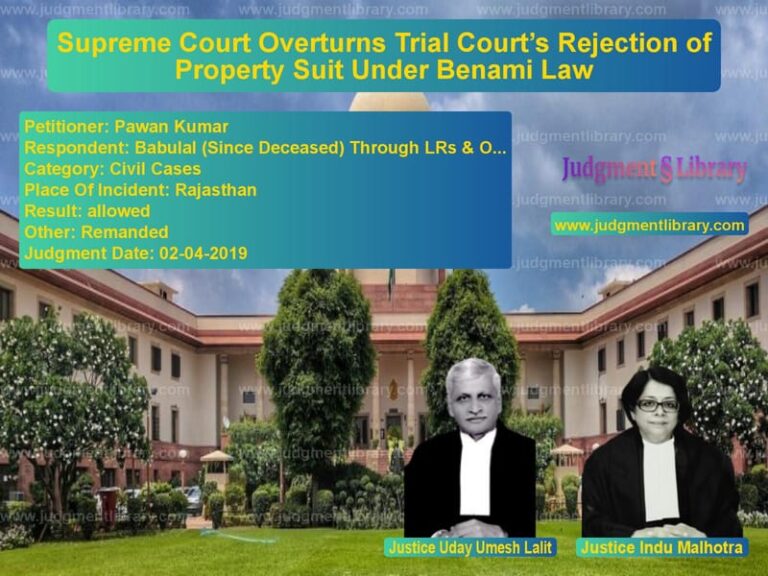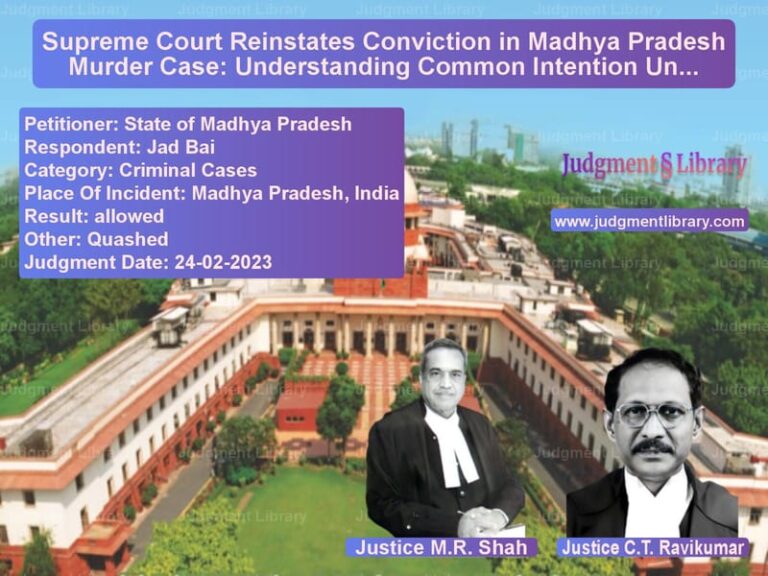Supreme Court Clarifies CERC’s Regulatory Powers in Power Grid vs Madhya Pradesh Transmission Case
In a landmark judgment that significantly clarifies the regulatory framework governing India’s electricity sector, the Supreme Court recently delivered a comprehensive ruling on the powers and functions of the Central Electricity Regulatory Commission (CERC). The case of Power Grid Corporation of India Limited versus Madhya Pradesh Power Transmission Company Limited & Others, decided on May 15, 2025, addresses crucial questions about the balance between regulatory and adjudicatory functions in the electricity transmission sector and establishes important principles about when courts should intervene in specialized regulatory matters.
The dispute originated from the implementation of the Western Region System Strengthening Scheme XIV (WRSS-XIV) and Western Region Strengthening Scheme XVI (WRSS-XVI) by Power Grid Corporation. As a central transmission utility, Power Grid was responsible for establishing transmission assets at the Indore sub-station, while Madhya Pradesh Power Transmission Company Limited (MPPTCL) was required to construct and commission the intra-state transmission lines. However, MPPTCL delayed the commissioning of its portion of the transmission infrastructure, which created a cascading effect on the entire project.
Faced with these delays, Power Grid approached the CERC seeking approval of the Commercial Operation Date (COD) for its transmission system and determination of transmission charges. The CERC, in its orders dated January 21, 2020, and January 27, 2020, approved the COD proposed by Power Grid but did not condone the time-overrun. However, in a significant move, the CERC allowed Power Grid to claim compensation from MPPTCL for the period prior to the determined COD through liquidated damages, interest during construction, and incidental expenses.
MPPTCL challenged these CERC orders before the Madhya Pradesh High Court, arguing that the CERC had exercised powers beyond those vested in it under the Electricity Act, 2003. The High Court admitted the writ petitions, ruling that despite the availability of an alternative remedy before the Appellate Tribunal for Electricity (APTEL), the writ petitions could be entertained because they involved questions about the CERC’s jurisdiction and alleged violations of natural justice principles.
Power Grid Corporation then approached the Supreme Court, represented by senior counsel Mr. M.G. Ramachandran. He argued that the Electricity Act, 2003, constitutes a complete and exhaustive code for electricity-related matters, providing for a specialized appellate mechanism through APTEL. He contended that “the Act, 2003 is an exhaustive and self-contained complete code on all matters concerning electricity including generation, distribution, trading and transmission of electricity.” Mr. Ramachandran emphasized that the High Court should not have entertained the writ petition when an efficacious alternative remedy was available under Section 111 of the Electricity Act.
The counsel for Power Grid also highlighted the practical consequences of allowing such writ petitions, noting that “there are multiple beneficiaries in an inter-state transmission system. Owing to the nature of electricity transmission systems that span across states, it is possible that an identical issue relating to the same transmission system may be challenged before multiple High Courts resulting in multiplicity of decisions as well as a higher chance of conflict between different decisions for the same transmission assets.”
Representing MPPTCL, Mr. Prashant Singh, the learned Advocate General of Madhya Pradesh, argued that the CERC had exceeded its jurisdiction by ordering recovery of transmission charges when neither the agreement between the parties nor the 2014 Tariff Regulations provided for claiming compensation or damages. He submitted that “no statutory authority or tribunal can assume jurisdiction in respect of a subject matter which the statute does not confer on such authority/tribunal.” Mr. Singh also contended that the High Court was justified in exercising its writ jurisdiction because the case fell within the exceptions outlined in the Supreme Court’s Whirlpool Corporation judgment.
The Supreme Court, comprising Justices J.B. Pardiwala and R. Mahadevan, delivered a comprehensive judgment that extensively analyzed the relationship between Sections 79 and 178 of the Electricity Act, 2003. The Court clarified that “the CERC functions as both, decision-making and regulation-making authority under Sections 79 and 178 respectively. However, while the authority exercising both these functions is one and the same, it is a settled position of law that the functions by themselves are separate and distinct. The functions under Section 79 are administrative or adjudicatory whereas those under Section 178 are legislative.”
The Court extensively referenced its earlier decision in PTC India Limited v. Central Electricity Regulatory Commission, noting that “the powers under Section 79 of the Act, 2003 are supposed to be exercised in conformity with the statutory regulations under Section 178 wherever such regulations are applicable. However, there is no bar on the exercise of powers under Section 79 in a situation where a regulation under Section 178 has not been enacted in respect of a particular subject matter.”
Addressing the core issue of whether the CERC’s grant of compensation was a regulatory or adjudicatory function, the Supreme Court made a crucial distinction: “The regulatory powers provided to the CERC under Section 79 are of ad hoc nature and are required to be exercised by the CERC in context of the specific circumstances of the parties before it. The rationale for provision of such ad hoc powers by the Act, 2003 is to ensure that regulatory gaps, if any, that may be discovered on a case-to-case basis, are filled or removed.”
The Court further elaborated that “the CERC granted liberty to the appellant herein to claim compensation from the respondent no. 1 to deal with a situation caused due to an unprecedented event not covered by any guidelines, regulations or contractual provisions between the parties.” In such situations where regulatory gaps exist, the Electricity Act mandates the CERC to strike a judicious balance between parties while considering commercial principles and consumers’ interests.
On the question of whether the High Court should have entertained the writ petition despite the availability of alternative remedy, the Supreme Court was categorical: “We find that this Court’s observations in Whirlpool (supra) are of no avail to the respondent no. 1 as the present matter falls in none of the cases enumerated therein. Therefore, there was no occasion for the High Court to admit the writ petition of the respondent no. 1.”
The Supreme Court concluded that “the High Court committed an egregious error in passing the impugned judgment. We are left with no other option but to set aside the impugned judgment and order dated 25.02.2021 passed by the High Court and dismiss both the writ petitions.” However, the Court clarified that it had only decided the jurisdictional issue and that MPPTCL could still approach APTEL to challenge the merits of the CERC’s decision on compensation.
This judgment reinforces the specialized nature of electricity regulation in India and emphasizes the importance of allowing expert tribunals like APTEL to handle technical matters within their domain. It also provides crucial clarity on the CERC’s powers to address regulatory gaps and ensure that parties responsible for delays in electricity transmission projects bear the appropriate financial responsibility, thereby protecting consumer interests and maintaining the commercial viability of transmission infrastructure projects.
Petitioner Name: Power Grid Corporation of India Limited.Respondent Name: Madhya Pradesh Power Transmission Company Limited & Ors..Judgment By: Justice J. B. Pardiwala, Justice R. Mahadevan.Place Of Incident: Indore, Madhya Pradesh.Judgment Date: 15-05-2025.Result: allowed.
Don’t miss out on the full details! Download the complete judgment in PDF format below and gain valuable insights instantly!
Download Judgment: power-grid-corporati-vs-madhya-pradesh-power-supreme-court-of-india-judgment-dated-15-05-2025.pdf
Directly Download Judgment: Directly download this Judgment
See all petitions in Corporate Compliance
See all petitions in Contract Disputes
See all petitions in Judgment by J.B. Pardiwala
See all petitions in Judgment by R. Mahadevan
See all petitions in allowed
See all petitions in supreme court of India judgments May 2025
See all petitions in 2025 judgments
See all posts in Corporate and Commercial Cases Category
See all allowed petitions in Corporate and Commercial Cases Category
See all Dismissed petitions in Corporate and Commercial Cases Category
See all partially allowed petitions in Corporate and Commercial Cases Category

